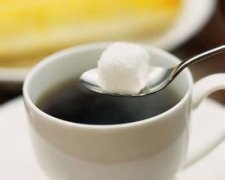Experts suggest that you should not drink alcohol or coffee within a week after taking anti-inflammatory drugs.

A few days ago, a post was frantically forwarded by netizens: I received a phone call from my mother in the morning, and my brother died of a heart attack the night before yesterday. While grieving, I want you to know that drinking alcohol while taking "anti-inflammatory drugs" can cause fatal adverse reactions...... pharmaceutical experts remind you: with anti-inflammatory drugs, do not drink alcohol within a week.
Alcohol enters the body, first in the liver cells through the action of alcohol dehydrogenase oxidation to acetaldehyde, because some antibiotics inhibit the activity of aldehyde dehydrogenase, so that acetaldehyde can not be further oxidized metabolism, resulting in acetaldehyde accumulation in the body. This toxic reaction to acetaldehyde accumulation is called a disulfiram-like reaction. Symptoms include nausea, vomiting, palpitations, dyspnea, and even shock and acute heart failure in severe cases. Antibiotics and alcohol both need to be metabolized by the liver. If two things that already hurt the liver enter the body at the same time, it will double the damage to the liver. If the reaction is strong, it may also lead to liver failure, which is life-threatening.
The most common drugs that cause disulfiram-like reactions are cephalosporins, which are prescribed with a clear reminder not to drink alcohol for a week during medication. However, in clinical practice, we found that many antibiotics without cephalosporins can also cause disulfiram-like reactions, such as metronidazole, tinidazole, ketoconazole, furazolidone, chloramphenicol, glibenclamide, phenformin and other drugs may also cause disulfiram-like reactions. Therefore, patients should also stay away from alcohol during the use of these drugs and do not drink alcohol for a week. During the period of taking antibiotics, in addition to alcohol, strong tea and coffee should not be drunk. Take strong tea as an example, it reacts with alcohol to produce acetaldehyde, which is also very harmful to the liver and kidneys. (Associate Chief Physician Xu Shuangbiao)
Important Notice :
前街咖啡 FrontStreet Coffee has moved to new addredd:
FrontStreet Coffee Address: 315,Donghua East Road,GuangZhou
Tel:020 38364473
- Prev

High-quality coffee common sense drinking too much coffee may cause pancreatic cancer
Pancreatic cancer is a digestive system disease, the harm to patients is very serious, so what is the cause of pancreatic cancer? According to experts, the cause of pancreatic cancer is not very clear. The occurrence of pancreatic cancer is related to smoking, drinking, high-fat and high-protein diet, excessive coffee consumption, environmental pollution and genetic factors. In recent years, it has been reported that pancreatic cancer is found in people with diabetes.
- Next

Boutique coffee common sense office workers drink up to a few cups of coffee a day
Now, coffee has become a fashionable drink, more and more cafes are open, young people like to go to cafes to party, and coffee has become a must-have drink for many families. however, health experts warn that drinking too much coffee is not good. Health experts advise coffee drinkers and those who have a lot of sociability not to drink too much coffee, and to drink 2 to 3 cups a day, in principle.
Related
- Beginners will see the "Coffee pull flower" guide!
- What is the difference between ice blog purified milk and ordinary milk coffee?
- Why is the Philippines the largest producer of crops in Liberia?
- For coffee extraction, should the fine powder be retained?
- How does extracted espresso fill pressed powder? How much strength does it take to press the powder?
- How to make jasmine cold extract coffee? Is the jasmine + latte good?
- Will this little toy really make the coffee taste better? How does Lily Drip affect coffee extraction?
- Will the action of slapping the filter cup also affect coffee extraction?
- What's the difference between powder-to-water ratio and powder-to-liquid ratio?
- What is the Ethiopian local species? What does it have to do with Heirloom native species?

